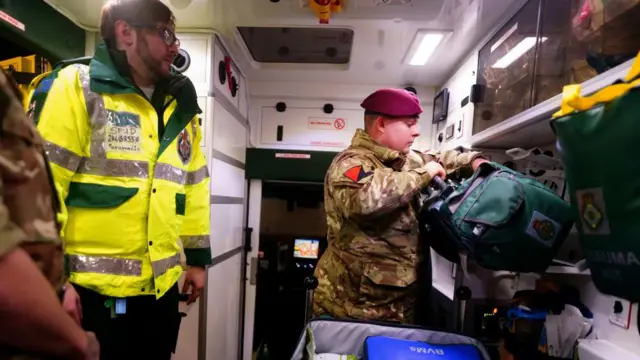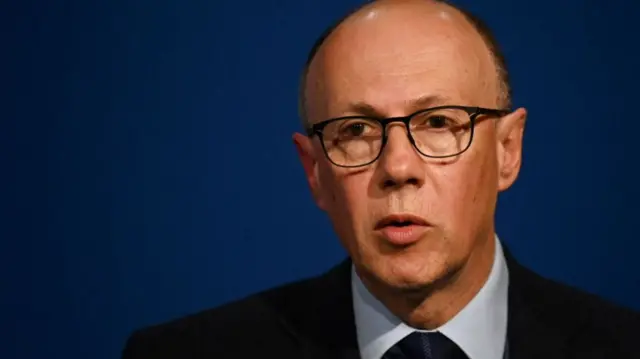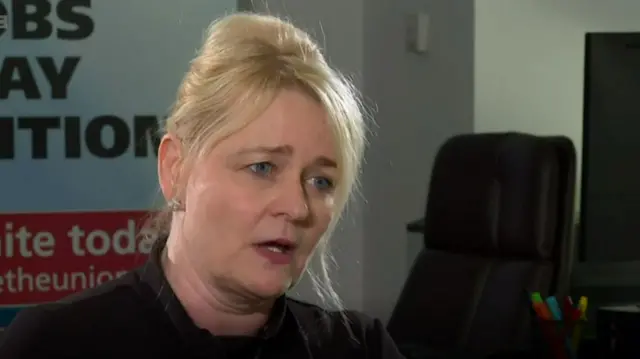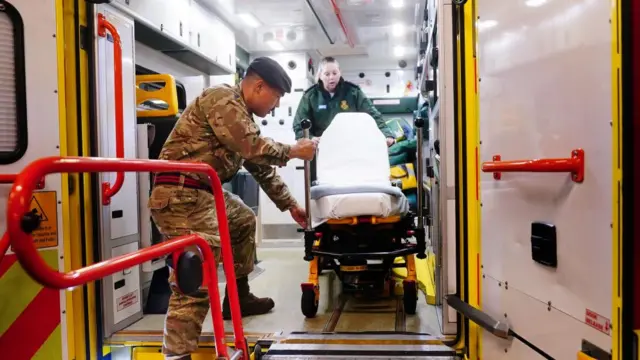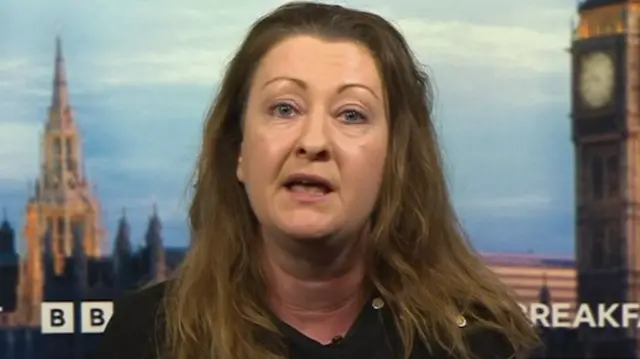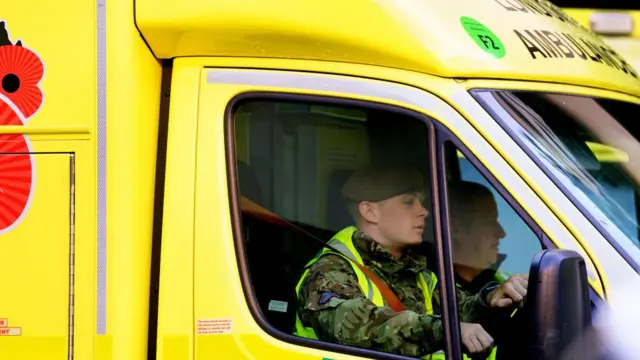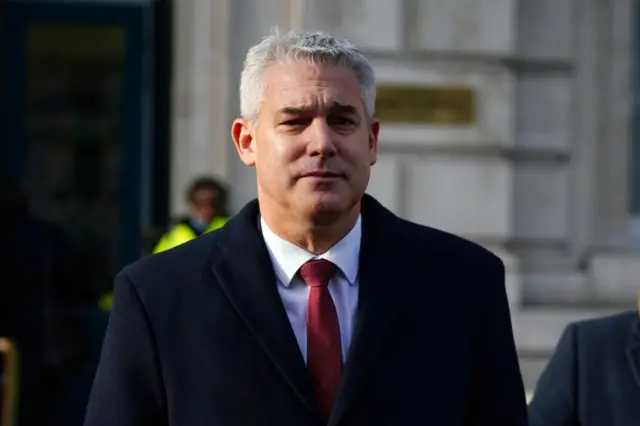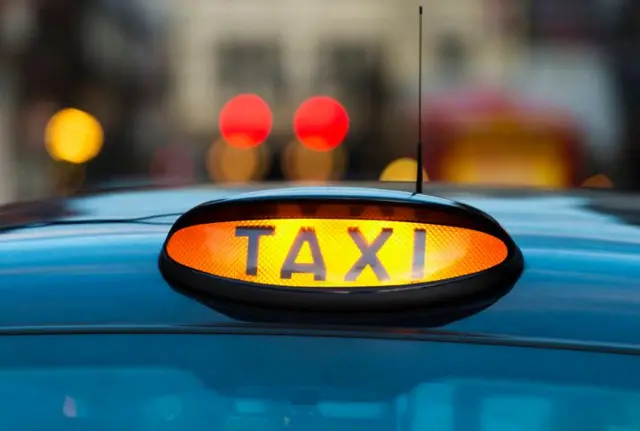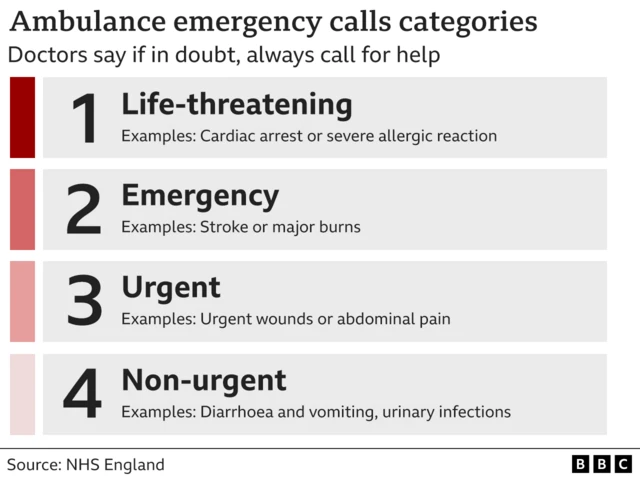Only way to put pressure on government is to strike - workerspublished at 08:27 GMT 21 December 2022
Katharine Da Costa
BBC health correspondent in Coventry
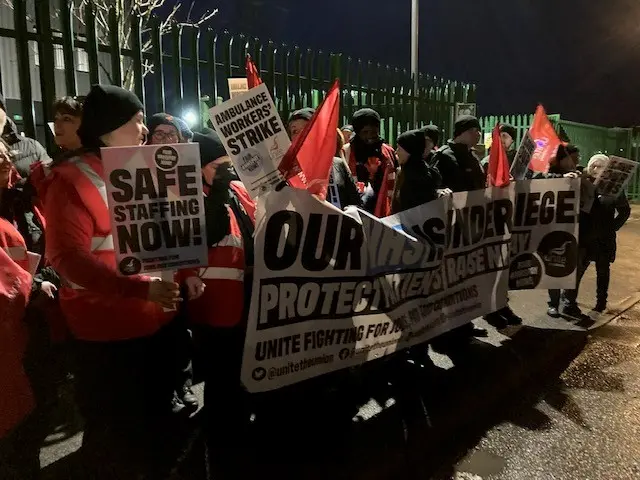
The ambulance strike here in Coventry started at 06:00 GMT and will end at 18:00 GMT.
About 30 members of the Unite union are out on the picket line this morning with their banners and flags.
Several ambulances with blue lights flashing have already set off on emergencies this morning.
Unions have agreed to cover life-threatening call outs, but lower category callers will be told they’ll have to make their own way to hospital.
The workers here say they don’t want to be striking, but they feel it’s the only way they can put pressure on the government to get fair pay.

